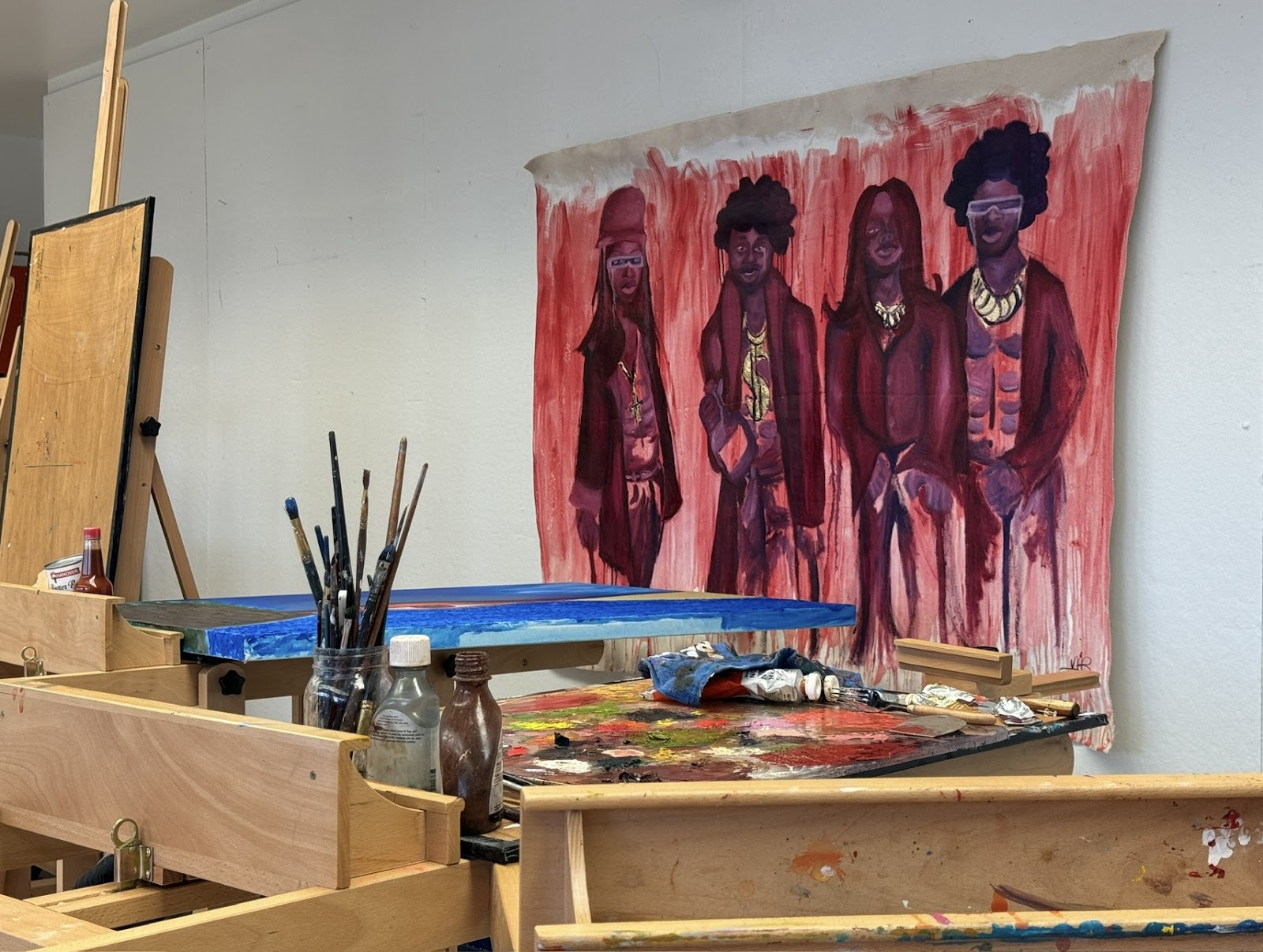By Tara Grey
The Kuujima Collective is a newly formed organization driven by Black creatives committed to making a meaningful impact through art, community and collaboration. Rooted in shared ideas and a vision for inclusivity, the collective emerged as a space for expression, support and growth.
In the wake of ongoing social justice movements and a growing interest in using art as a tool for activism, the collective provides a space for students to channel their passion into tangible action. With a surge in student-led initiatives addressing societal challenges, the Kuujima Collective is a hub for those who want to merge creativity with revolutionary work.
Research from Americans for the Arts indicates a growing trend of artists engaging in activism to drive social change, and shows how artistic activism can effectively raise environmental and political awareness, enhancing public participation in decision-making processes.
The founders — Chelsea Nelson, Col Anderson, Augustina Ngafuan and Sydney Trotter — came up with the idea in December. Nelson said the inspiration for creating the organization was sparked by passionate discussion among the group of friends as they combined different ideas. Nelson then decided to put their plans into action and started creating the collective.
“The name Kuujima comes from the bonds of principles, Kuumba, which means creativity, and Ujima, which means collective responsibility,” Anderson said. The words originate from the Swahili language.
The organization has a focus on artivism, a combination of art and activism, and a form of social protest that uses art to address political and social issues.
Nelson, a sophomore strategic communications major from Capital Heights, Maryland, emphasized the collective’s goal to ultimately give creatives at Howard a place to thrive.
“We want to focus on student entrepreneurs who use their creativity to make money. So that’s why we say artists, DJs, braiders, nail techs all those people,” Nelson said. “And we just want to sort of create a community of artists who are also dedicated to being revolutionaries and to being activists.”
With this focus on student entrepreneurs, Nelson said that the mission of the organization is to create a safe community that also extends support to others in a number of ways, such as doing community service events, going to food banks, hosting self-defense lessons and teaching safety measures to take while protesting.
Anderson, a sophomore psychology major from Chicago, stressed the importance of creating a space where creators can come together, learn from and uplift one another.
Ngafuan, a sophomore environmental science major and economics minor from Prince George’s County, Maryland, by way of Liberia, also emphasized the mission of the organization as being to “promote creativity during revolutionary times.”
Ngafuan expressed excitement over being able to contribute to building a community where many different Black creatives can connect with each other and find their voice.
The founders said they aim to make the organization a space with essential information and resources, with a particular focus on supporting neurodivergent and queer communities at Howard, as well as those who “don’t always fit in elsewhere on campus.”
Trotter, a psychology major and human development minor from Atlanta, by way of Indianapolis, also highlighted the collective’s goal to create an inclusive community that anyone can join and lean on for emotional and creative support.
The team is currently in the midst of planning events focusing on spiritual, emotional and collective growth, such as meditation sessions, tarot readings and vision board building.
Some upcoming events for the organization include a food bank community service event and a clothing swap to promote sustainability initiatives.
“We want to do the clothing swap and practice that by educating people on why fast fashion is bad, and also give them a resource for ways that they can stop supporting fast fashion, instead of just giving them the information and then leaving them with nothing afterwards,” Nelson said.
Since creating their first Instagram post on Feb. 1, the founders said they have received immense positive feedback from the student body, with students expressing excitement about being activists, artists and revolutionaries.
“There’s already people who want to contribute. I think it’s just a club that’s needed for campus. It’s something that’s new,” Trotter said.
To underscore the importance of having a space for revolutionaries, the founders emphasized that creativity has long been a driving force for change within Black communities. Anderson sees Kuujima as a continuation of past movements that used art as a tool for resistance and self-determination.
“We need to bring back that organization that lets Black people see their potential and see their work and their value outside of whiteness. We lost a lot of that community, but we can be so powerful,” Anderson said.
“Kuujima is for the people…we want to help guide those feelings through a process of putting all that energy, grit and passion back into the self, back into expressions of creativity and back into uplifting and healing the community,” Anderson said.

